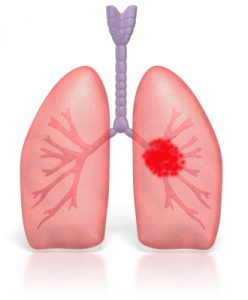
Most of you would have read about the recent study linking some medications used to treat blood pressure to the risk of lung cancer. This was published in the British Medical Journal last week. it was a bit of a surprise to some extent although once the dust settled, it wasn’t that surprising after all. A class of medication called Angiotensin Converting Enzymes Inhibitors (ACEI) causes a build-up of bradykinin in the lungs and bradykinin has been reported to stimulate growth of lung cancers. ACEI also results in an increase in another chemical, substance P and that has been linked to tumour growth. Suddenly, there may be some substance to the study after all. We better explore more.
ACEIs are pretty much the back bone of our anti-hypertensive therapies. It blocks the conversion of Angiotensin I (ATI) to Angiotensin II (ATII). Reduction of ATII lowers blood pressure, improve blood flow through the heart and kidneys and allows the heart to pump easier. It also helps with the heart muscles rejuvenation. Unfortunately, reduction in activation of ATII leads to increase in bradykinin which is thought to be the cause of a dry ACEI cough, angioedema and rash.
In a study involving 700 general practices and 15 million patient records, almost 1 million patients were started on new medications for high blood pressure including this class of medication. The study followed up the patients for 10 years and found that the use of ACEI appears to increase the risk of lung cancer by about 14% if use was for more than 5 years. The risk further increase as time went along.
The 14% looks scary but the actual rates were actually quite low. Out of 1000 person years (i.e. 100 patients over 10 years), there was 1.6 vs 1.2 lung cancers discovered during the 10 years in patients on ACEI vs patients not on ACEI. However, because many many patients are on these medications, the actual numbers ends up being significant.
Some of you may be on this class of medication. Ramipril or tritace, lisinopril or zestril and perindopril or coversyl are the common ACEI used in the study.
To explore more about the issue, read the article here.
